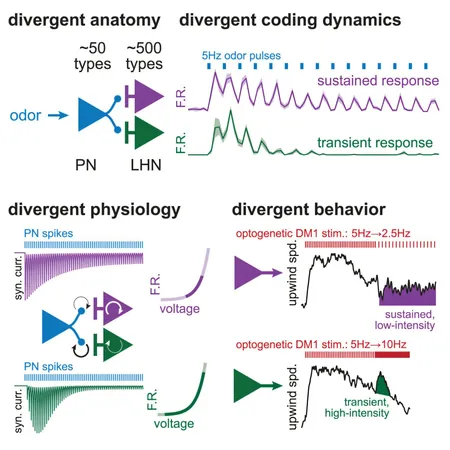
Revolutionizing Huntington's Disease Research: Smartphone Tests Could Transform Drug Development
2025-06-09
Author: Jia
Unlocking New Avenues in Huntington's Disease Detection
Cutting-edge research from University College London (UCL) and Roche has unveiled a groundbreaking approach to enhancing the detection of Huntington's disease progression using smartphone technology. This innovative study, published in the journal Brain, reveals that digital tests could significantly improve clinical trials and patient monitoring.
Introducing the Huntington's Disease Digital Motor Score (HDDMS)
The study showcases a series of straightforward movement control assessments administered via a smartphone app. These tests evaluate essential functions such as balance, finger tapping, and involuntary movements, ultimately calculating a Huntington's Disease Digital Motor Score (HDDMS). In a twist, a lower score indicates better motor function, while a higher score suggests deterioration.
Empowering Patients and Researchers Alike
By integrating these easy-to-complete tests into daily life, patients provide doctors and researchers with vital data that can track disease progression in real-time. The researchers are optimistic that the HDDMS could accelerate clinical trials by enabling even subtle changes in symptoms to be detected, thus refining the evaluation of promising new treatments.
A Game-Changer for Huntington’s Disease Trials
According to Professor Ed Wild from the UCL Huntington's Disease Centre, the incorporation of HDDMS could yield more precise insights regarding treatment efficacy with fewer participants and shorter timelines than traditional methods. The convenience of a five-minute assessment at home makes it a potentially more impactful measure than clinical in-office assessments.
The Struggle Against Huntington's Disease
Huntington's disease remains a cruel and inherited neurodegenerative disorder, progressively eroding movement control, cognitive abilities, and emotional stability. While there's currently no cure and existing treatments focus on symptom management, this research represents a beacon of hope as new therapies enter clinical trials.
The Secret Sauce Behind the HDDMS
Developed with rigorous insights from 1,048 participants across four studies, the HDDMS emerges from a robust analysis of digital tasks designed to predict disease progression. Remarkably, it has demonstrated to be twice as sensitive as the commonly used Unified Huntington's Disease Rating Scale, ensuring more accurate monitoring of motor function changes.
Paving the Way for Future Research
Professor Wild emphasizes the critical need for refined measurement tools in rare diseases like Huntington's. As participation options dwindle, minimizing trial size and burden becomes essential. The HDDMS could broaden the horizon for Huntington's research, making it invaluable for both academic and industry stakeholders.
Navigating Challenges and Future Directions
While this research marks a significant advancement, it's essential to note some limitations. All data stems from participants in specific clinical trials, meaning HDDMS has yet to be tested in individuals before symptom onset or those with advanced stages of the disease. Moreover, further studies are necessary to confirm the HDDMS's capacity to forecast long-term functional decline.
A Bright Future with Digital Biomarkers
The findings emphasize the transformative role of digital biomarkers in neurology, spotlighting their potential to revolutionize disease monitoring and drug development. Researchers and pharmaceutical players focusing on Huntington's disease can access the HDDMS through Roche Diagnostics, indicating a promising step toward a future where technology bridges the gap in medical research.




 Brasil (PT)
Brasil (PT)
 Canada (EN)
Canada (EN)
 Chile (ES)
Chile (ES)
 Česko (CS)
Česko (CS)
 대한민국 (KO)
대한민국 (KO)
 España (ES)
España (ES)
 France (FR)
France (FR)
 Hong Kong (EN)
Hong Kong (EN)
 Italia (IT)
Italia (IT)
 日本 (JA)
日本 (JA)
 Magyarország (HU)
Magyarország (HU)
 Norge (NO)
Norge (NO)
 Polska (PL)
Polska (PL)
 Schweiz (DE)
Schweiz (DE)
 Singapore (EN)
Singapore (EN)
 Sverige (SV)
Sverige (SV)
 Suomi (FI)
Suomi (FI)
 Türkiye (TR)
Türkiye (TR)
 الإمارات العربية المتحدة (AR)
الإمارات العربية المتحدة (AR)